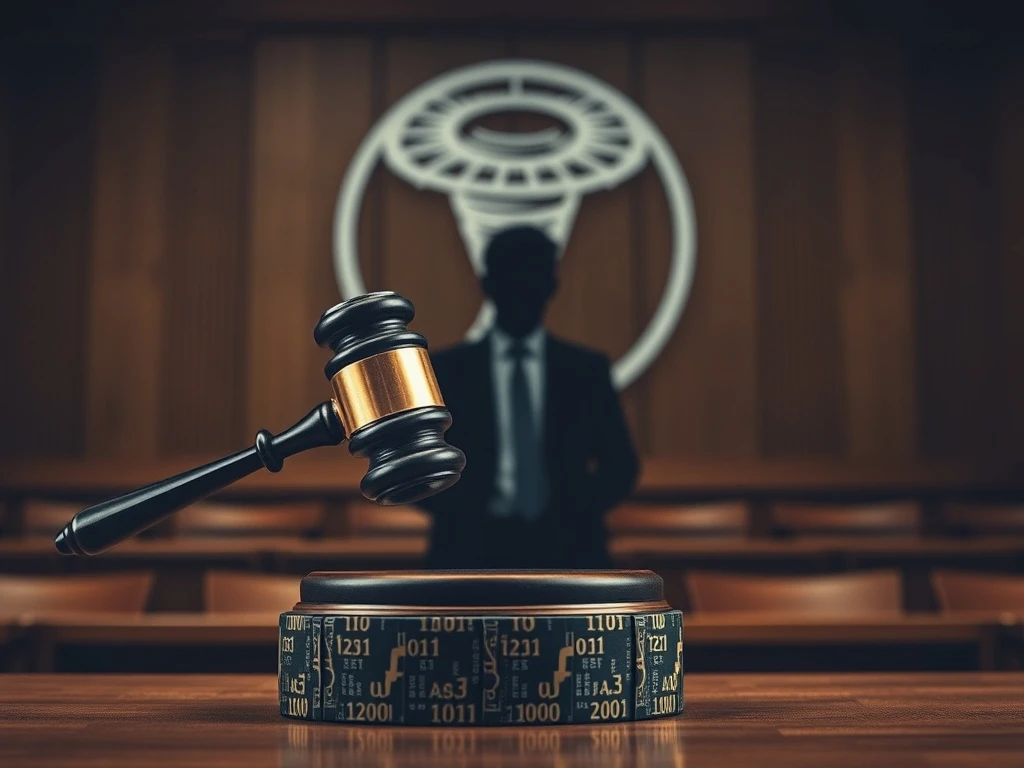Roman Storm’s Crucial Crypto Trial: A Critical Juncture for DeFi Law

The crypto world holds its breath as Roman Storm, co-founder of the privacy protocol Tornado Cash, faces a pivotal criminal trial. This legal battle, which kicks off next week, isn’t just about one developer; it’s a critical test for the future of decentralized finance and open-source code. The stakes are incredibly high, with Storm’s legal team making a last-minute push that could potentially delay the proceedings. The outcome of the Roman Storm Trial will have far-reaching implications for developers and the broader digital asset ecosystem.
The Roman Storm Trial: A Looming Continuance?
The clock is ticking for Roman Storm, whose highly anticipated criminal trial is set to begin jury selection on Monday. However, his defense attorneys are not backing down, signaling a potential request for a brief continuance if a crucial motion is denied. In a recent filing in the US District Court for the Southern District of New York (SDNY), Storm’s legal team moved to exclude testimony from an unnamed witness. This witness is identified as the “claimed perpetrator of an alleged hack who allegedly used Tornado Cash.” The defense argues that prosecutors disclosed this witness after the agreed-upon deadline, raising concerns about fairness and due process. The possibility of this delay underscores the intense legal maneuvering happening right before the trial, highlighting the complex nature of the proceedings.
Unpacking Crypto Money Laundering Allegations
Roman Storm faces serious charges, including money laundering, conspiracy to operate an unlicensed money transmitter, and conspiracy to violate US sanctions. These allegations stem from his involvement with Tornado Cash, a cryptocurrency mixer designed to enhance transaction privacy. Prosecutors contend that Storm, as a co-founder, facilitated illicit financial activities by enabling criminals to obscure the origins of their funds. The defense, however, maintains that developing code for a privacy tool is not a crime and that Storm had no intent to facilitate illegal acts. The core of this legal debate revolves around whether a developer can be held responsible for the misuse of open-source software they create. The resolution of these Crypto Money Laundering allegations could set a significant precedent for how software developers are treated under financial regulations globally.
Tornado Cash Legal Battle: High Stakes for DeFi
The Tornado Cash Legal Battle extends far beyond Roman Storm himself. This case is seen by many in the crypto community as a direct challenge to the principles of decentralized finance (DeFi) and the freedom of open-source development. Supporters argue that prosecuting developers for code they write, regardless of its subsequent use, could stifle innovation and privacy-enhancing technologies. Vitalik Buterin, co-founder of Ethereum, and Paradigm founder Matt Huang are among the prominent figures who have publicly supported Storm, contributing to his legal defense fund. This widespread support highlights the community’s perception that the trial is a litmus test for the future regulatory landscape of DeFi, potentially determining if “code is speech” will hold up in court.
The Impact of Hacker Testimony on the Defense Strategy
A key point of contention for Storm’s legal team is the proposed testimony from the alleged hacker. The defense contends that allowing this witness would be “highly prejudicial” to Storm. Their argument is multifaceted: first, the late disclosure of the witness by the prosecution hinders their ability to adequately prepare a counter-argument. Second, and more critically, they fear the Hacker Testimony would “confuse and mislead the jurors into believing that Mr. Storm was involved in the underlying purported hack or intended to facilitate it, which is not true.” Furthermore, the defense suggests such testimony could “evoke an angry response from jurors,” potentially leading to an unfair bias against Storm. The decision by Judge Katherine Failla on this motion is eagerly awaited, as it could significantly alter the trial’s trajectory and the defense’s approach.
Decentralized Finance Law Under Scrutiny
The Roman Storm trial is just one piece of a larger puzzle concerning Decentralized Finance Law and its enforcement globally. The crypto industry has watched closely as authorities grapple with how to regulate permissionless protocols. The contrasting fate of Alexey Pertsev, another Tornado Cash co-founder, in the Netherlands, where he was convicted and sentenced to over five years in prison for money laundering, underscores the varied international legal interpretations. Meanwhile, Roman Semenov, the third co-founder, remains at large, reportedly in hiding. These cases collectively highlight the urgent need for clearer regulatory frameworks that balance innovation with legitimate concerns about illicit finance. The outcome of Storm’s trial in the U.S. will undoubtedly send ripples through the global DeFi ecosystem, influencing how developers operate and how privacy tools are viewed by legal authorities.
Conclusion: A Defining Moment for Crypto
As Roman Storm’s trial approaches, the crypto community holds its breath. The potential for a continuance, the contentious issue of hacker testimony, and the broader implications for decentralized finance law make this case a landmark event. It’s a stark reminder that while innovation pushes boundaries, legal frameworks are struggling to keep pace. The verdict will not only determine Roman Storm’s fate but could also redefine the responsibilities of open-source developers and shape the future of privacy and innovation in the digital asset space. This trial is more than just a legal proceeding; it’s a critical moment for the entire crypto industry, setting precedents for years to come.









